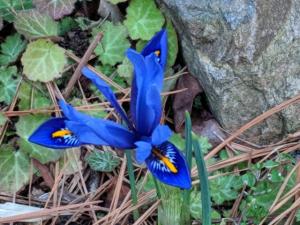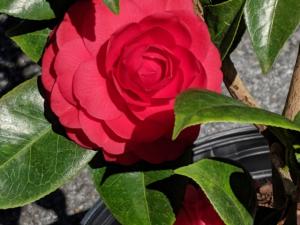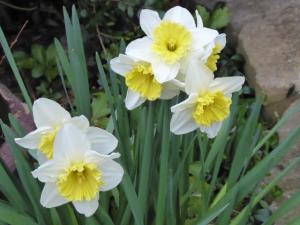Mill Pond Garden offers tips for success with starting seeds
Mill Pond Garden is a holistic, four-season haven that offers area gardeners a place to get reliable horticultural information and see what plants do well locally. Located at 31401 Melloy Court on Red Mill Pond north of Lewes, it is the Cape Region’s only public horticultural garden and a nonprofit entity. To subscribe to the newsletter and get tickets, go to millpondgarden.com.
Since planting season is approaching, here are some tips for starting seeds.
Whether planting directly into outdoor vegetable gardens or flower beds, or indoors in trays for an earlier start, gardeners can get greater germination more quickly by preparing the seeds. Seeds are tough. They have to be, because in nature, seeds go through many traumas before germinating, and they have evolved to require this process.
Mill Pond Garden recommends scarifying most seeds, then putting them in very hot tap water with a bit of coffee added and soaking for a day and a half, followed by planting immediately afterward.
Start with scarifying seeds with hard shells, but not those that have a softer outside like peas or beans. Scarifying means scratching the seed’s hard coat so it can absorb water. In nature, this would result from animals chewing or birds using their bills to crack the seeds open.
Scarifying can be done in several ways; just make sure to not destroy the seed, just scratch it. For a tough-coated seed like a sunflower, use a file on the edge to lightly cut into that seam, or nick the seed shells with a knife. If there are many seeds to do, lightly hammering them just enough to crack the shells slightly can do the trick. The sunflower seeds that germinate around the bird feeder are the ones that a bird cracked and dropped to the ground. For small, hard seeds from wildflowers and other packet seeds, put them on a large sheet of rough sandpaper and use another piece to firmly rub over the top a few times to scratch their hard coats.
Next, take the scarified seeds and put them in a bowl. Cover with two cups of very hot tap water, not boiling. Many seeds need hot or cold, or both, to germinate; hot water seems to work well on seeds for annual flowers and vegetables. As the water cools, add some light acid such as a half-cup of coffee or tea to mimic the stomach acid of animals. The acid dissolves the seeds’ chemical coatings.
The soak mimics the natural rainy spell that tells the seed conditions are good for germinating, thus speeding up that response over direct seeding in the ground. Do not oversoak the seeds; at least 24 hours are recommended but not more than 48 hours. Mill Pond Garden has seen best results with a day-and-a-half soak.
The seeds must be planted immediately after soaking, when they will be ready to germinate immediately. Do not set them aside for later planting, as they will likely dry and die instead.
Follow the package directions for planting the seeds, especially planting depth, drainage, temperature, and sunlight requirements. For the Cape Region, lettuces may be planted around March 15, and summer annuals and most vegetables can be started outdoors about May 10.
























































